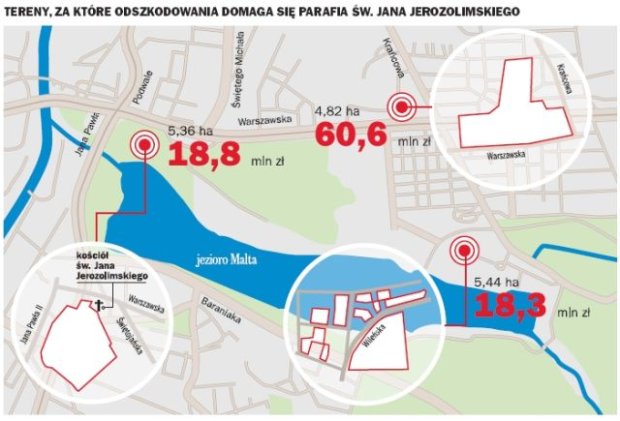boletus
2 Nov 2012
Genealogy / Lublin - Looking for Klepacki - Klepadlo - Klepackzi - Blaschik - etc Ancestors [18]
These is the quintessential information. Without it you would not go anywhere in Poland's archives. Now you have at least the starting points for your searches in Poland.
1. Stanisława Błaszczyk, born in KALISZ, Wielkopolska Voivodship (Greater Poland Province), 1889-05-08
German spelling: Kalisch, Poznan Provinz, Prussia
2. Zygmunt Klepacki, born in Krasnopol, 1879-06-08
Krasnopol comes from the combination of words "krasny" (lovely, colourful, red) + pol (from Greek "polis", a city).
However, here are some ambiguities, since there are, or were in the past, several places of this name in former Poland. I know of at least three, and there were possibly some more:
a. Krasnopol (old name), now Niżankowice (ukr. Нижанковичі), region Stary Sambor, Lwów (Lviv) Province,
pl.wikipedia.org/wiki/Ni%C5%BCankowice_(Ukraina)
b. Krasnopol, Żytomierz Province, Ukraine
c. Krasnopol, gmina Krasnopol, Sejny County, Podlaskie Voivodship, NE Poland.
pl.wikipedia.org/wiki/Krasnopol_(wojew%C3%B3dztwo_podlaskie)
The surname Klepacki (fem. Klepacka) is quote popular in Podlaskie Voivodship. See this map moikrewni.pl/mapa/kompletny/klepacki.html and pay attention to red colours there.
One old fragmentary database shows 50 Klepackis born between 1800 and 1885 in that province; particularly in Rajgród, Suwałki,Trzcianne and Tykocin but none of them are particularly related to Krasnopol. Go here geneteka.genealodzy.pl , select "Podlaskie", type in Klepacki surname, the range of years to search, number or records per page (50, say), and type of the record: all, births, marriages, deaths.
Another database, related to family WIELKA, has an index of marriages from Krasnopol between 1808 and 1877. It shows one record related to Klepacki:
1847-01-09, Tomasz Klepacki married Leonarda Mochniewicz in Krasnopol
Without much of the search, I can only assume, that whatever data is available from this region - which was not burnt or damaged otherwise - is now in the archives of Suwałki:
Archiwum Państwowe w Suwałkach, ul. T. Kościuszki 69,
16-400 Suwałki, tel./fax 87 566 21 67,
e-mail: archiwum@suwalki.ap.gov.pl
So at one point you may want to contact them for search and retrieval of birth certificate of Zygmunt Klepacki. This would give you a confirmation of his birth, as well as the names of his parents. The service would cost you few bucks/ hour for search (maximum 10 hours) plus few bucks per printed copy.
These is the quintessential information. Without it you would not go anywhere in Poland's archives. Now you have at least the starting points for your searches in Poland.
1. Stanisława Błaszczyk, born in KALISZ, Wielkopolska Voivodship (Greater Poland Province), 1889-05-08
German spelling: Kalisch, Poznan Provinz, Prussia
2. Zygmunt Klepacki, born in Krasnopol, 1879-06-08
Krasnopol comes from the combination of words "krasny" (lovely, colourful, red) + pol (from Greek "polis", a city).
However, here are some ambiguities, since there are, or were in the past, several places of this name in former Poland. I know of at least three, and there were possibly some more:
a. Krasnopol (old name), now Niżankowice (ukr. Нижанковичі), region Stary Sambor, Lwów (Lviv) Province,
pl.wikipedia.org/wiki/Ni%C5%BCankowice_(Ukraina)
b. Krasnopol, Żytomierz Province, Ukraine
c. Krasnopol, gmina Krasnopol, Sejny County, Podlaskie Voivodship, NE Poland.
pl.wikipedia.org/wiki/Krasnopol_(wojew%C3%B3dztwo_podlaskie)
The surname Klepacki (fem. Klepacka) is quote popular in Podlaskie Voivodship. See this map moikrewni.pl/mapa/kompletny/klepacki.html and pay attention to red colours there.
One old fragmentary database shows 50 Klepackis born between 1800 and 1885 in that province; particularly in Rajgród, Suwałki,Trzcianne and Tykocin but none of them are particularly related to Krasnopol. Go here geneteka.genealodzy.pl , select "Podlaskie", type in Klepacki surname, the range of years to search, number or records per page (50, say), and type of the record: all, births, marriages, deaths.
Another database, related to family WIELKA, has an index of marriages from Krasnopol between 1808 and 1877. It shows one record related to Klepacki:
1847-01-09, Tomasz Klepacki married Leonarda Mochniewicz in Krasnopol
Without much of the search, I can only assume, that whatever data is available from this region - which was not burnt or damaged otherwise - is now in the archives of Suwałki:
Archiwum Państwowe w Suwałkach, ul. T. Kościuszki 69,
16-400 Suwałki, tel./fax 87 566 21 67,
e-mail: archiwum@suwalki.ap.gov.pl
So at one point you may want to contact them for search and retrieval of birth certificate of Zygmunt Klepacki. This would give you a confirmation of his birth, as well as the names of his parents. The service would cost you few bucks/ hour for search (maximum 10 hours) plus few bucks per printed copy.
 PolishForums LIVE / Archives [3]
PolishForums LIVE / Archives [3]
